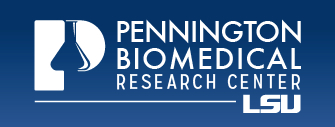Effects of Exercise for Overweight Women With Polycystic Ovary Syndrome
| Status: | Completed |
|---|---|
| Conditions: | Ovarian Cancer, Obesity Weight Loss, Women's Studies |
| Therapuetic Areas: | Endocrinology, Oncology, Reproductive |
| Healthy: | No |
| Age Range: | 18 - 30 |
| Updated: | 2/27/2019 |
| Start Date: | January 2007 |
| End Date: | June 2007 |
Effects of Physical Activity on Insulin Resistance and Adiposity in Polycystic Ovary Syndrome "Poly"
The effects of a 16-week exercise training program on insulin resistance and adiposity in
overweight/obese women with Polycystic ovary syndrome (PCOS).
overweight/obese women with Polycystic ovary syndrome (PCOS).
Young, overweight/obese women with PCOS along with age and BMI-matched healthy controls
without PCOS will be enrolled in this study. Participants will have assessments of body
composition (by DEXA), visceral and ectopic fat (by MR), ovarian parameters (follicle size
and number, by MRI) insulin sensitivity (by euglycemic hyperinsulinemic clamp), interstitial
lipolysis (by microdialysis), whole body lipolysis and glycolysis (by stable isotopes),
aerobic fitness (by VO2max test) and a fat biopsy performed across two clinic visits (1
outpatient visit, and 1 overnight stay). Participants in the control group will undergo these
assessments once only, whereas participants in the PCOS Group will have these assessments
twice, once at baseline and once following a 16 week supervised aerobic exercise program.
Throughout the exercise program body weight will be measured weekly and menstrual cycle
frequency will be documented on a calendar. Additionally, vital signs, weight, waist and hip
circumferences will be measured and a fasting blood sample collected every 4 weeks.
without PCOS will be enrolled in this study. Participants will have assessments of body
composition (by DEXA), visceral and ectopic fat (by MR), ovarian parameters (follicle size
and number, by MRI) insulin sensitivity (by euglycemic hyperinsulinemic clamp), interstitial
lipolysis (by microdialysis), whole body lipolysis and glycolysis (by stable isotopes),
aerobic fitness (by VO2max test) and a fat biopsy performed across two clinic visits (1
outpatient visit, and 1 overnight stay). Participants in the control group will undergo these
assessments once only, whereas participants in the PCOS Group will have these assessments
twice, once at baseline and once following a 16 week supervised aerobic exercise program.
Throughout the exercise program body weight will be measured weekly and menstrual cycle
frequency will be documented on a calendar. Additionally, vital signs, weight, waist and hip
circumferences will be measured and a fasting blood sample collected every 4 weeks.
Inclusion Criteria:
- Women between the ages of 18-30, inclusive.
- BMI greater than or equal to 25.
- Sedentary lifestyle - not currently exercising more than 60 minutes per week.
- A medical diagnosis of polycystic ovary syndrome. The diagnosis will be compared with
the most recent international criteria1. Together with irregular menses (fewer than 6
cycles per year), participants must also have at least one of the following
characteristics;
1. presence of polycystic ovaries on transvaginal ultrasound, >10 cysts, 2-8 mm in
diameter (ultrasound will not be done in this study however; ultrasound reports
will be used if available) and/or
2. clinical manifestations (hirsutism) examined by the PI at the screening visit or
biochemical evidence (elevated testosterone or free androgen index) of
hyperandrogenism, determined by fasting blood sample collected during the
screening visit.
- Women enrolling for the non-PCOS control group are required to have regular menstrual
cycles (one cycle per month).
Exclusion Criteria:
- Individuals with a history of cardiovascular disease or an elevated blood pressure
above 160/90 mmHg.
- Individuals with a history of Diabetes (Type 1 or Type 2).
- Individuals with a history of Kidney, Liver or Heart disease.
- Individuals with untreated thyroid disease.
- Individuals who smoke.
- Individuals who exercise more than 60 minutes per week.
- Individuals who use medications including contraceptives (medications used to treat
thyroid disease are permitted).
- Individuals with alcoholism or other substance abuse.
- Individuals who are pregnant or lactating (breast feeding).
- Individuals who become pregnant throughout the study will be excluded.
- Individuals who are trying to become pregnant.
- Control subjects will be excluded if they have irregular menses (fewer than 1 cycle
per month).
- Unable to complete approximately 60 minutes of medium intensity exercise per day (5
days per week) at the Pennington Health and Fitness Center (PCOS Group Only).
We found this trial at
1
site
Pennington Biomedical Research Center Unlike other medical research facilities where science occurs in separate labs...
Click here to add this to my saved trials
